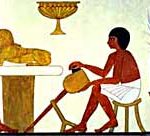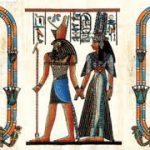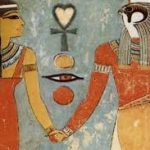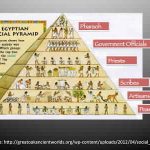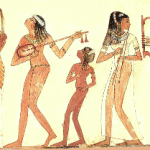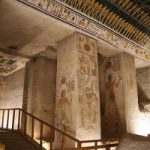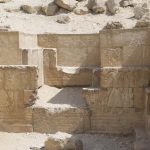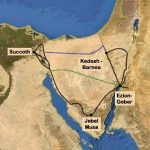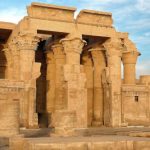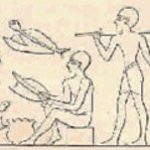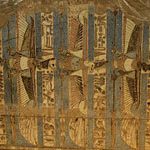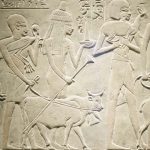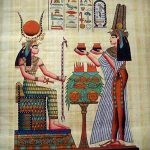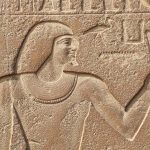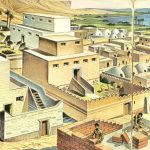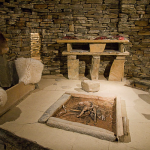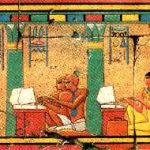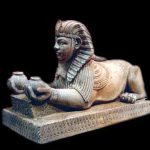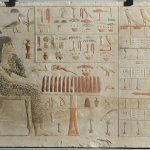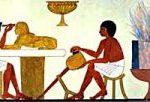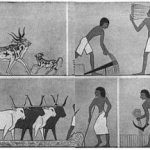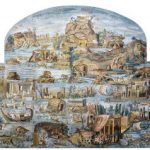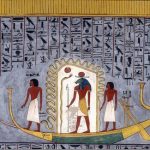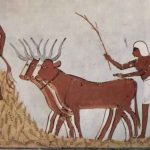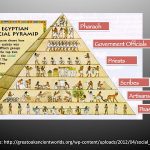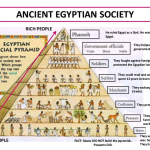Farming was the foundation of the ancient Egyptian economy. It was the most common occupation and was often carried down from father to son. Many farmed their local noble’s land, while more affluent farmers worked their own land that was passed down through the generations. Typically, farming their land occupied the whole family. After the annual

yearly Nile flood waters had receded, farmers planted their crops, usually wheat, barley, flax and corn. Farmers also planted vegetables and tended fig and pomegranate orchards. This was a gruelling and often precarious occupation as a farmer could lose their harvest if the Nile floods didn’t come.
Construction Workers
The Pharaohs of ancient Egyptian had an insatiable appetite for colossal construction projects such as building pyramids, carving out tombs, constructing temple complexes

and erecting obelisks. This required immense logistical efforts to recruit and sustain both a skilled and unskilled labour force. Hence there was an almost constant demand for construction workers, masons, bricklayers, artists, carpenters and shipbuilders. Just how physically demanding this exhausting work was is displayed in the compressed vertebrae found in the skeletons of many construction workers during the excavation of several necropolises.
Soldiers
Military service was not a high-status role in ancient Egyptian society. However, there was a constant need for recruits so anyone who wished to join the military was allowed to do so. Thus the military was a welcome alternative for those tired of farming or construction work. Soldiering came with several downsides as soldiers ran the risk of being killed in battle or dying from disease when operating in hostile climates.

Those soldiers who distinguished themselves in battle could potentially rise through the ranks to forge a name for themselves. However, military service was tough and uncompromising and the army often found itself caught up in long, drawn-out campaigns against competing empires.
Domestic Servants
Women worked as domestic servants more often than men. Typical servant roles in ancient Egyptian high-status households included cleaning, cooking, babysitting

the children and running errands. While servants were exposed to the fickle whims of their masters, they enjoyed the comforts of a roof over their heads and a reliable food supply compared to farmers.
Middle-Class Jobs
In contrast to some of its competing rival civilisations, Egypt had a large middle-class. Members of this class congregated in cities or on country estates. Their skilled labour provided them with a comfortable income enabling them to buy food and other goods rather than having to make their own. Men filled many middle class occupations. Their comfortable income enabled them to support their family on their income alone. In contrast to the working class, not all middle-class women worked. However, many women were engaged in family enterprises or managed their own shops, bakeries or breweries.
Architects
An architect was a high-status occupation and one, which was highly respected in ancient Egypt. Architects studied physics and mathematics prior to commencing their practice. Architects, who secured a government contract for a prominent civic construction project, could aspire to joining the ranks of the upper class. As with many occupations in ancient Egypt, architecture was often a family occupation. However, others took apprenticeships to learn how to plan roads, temples, granaries and building complexes.


